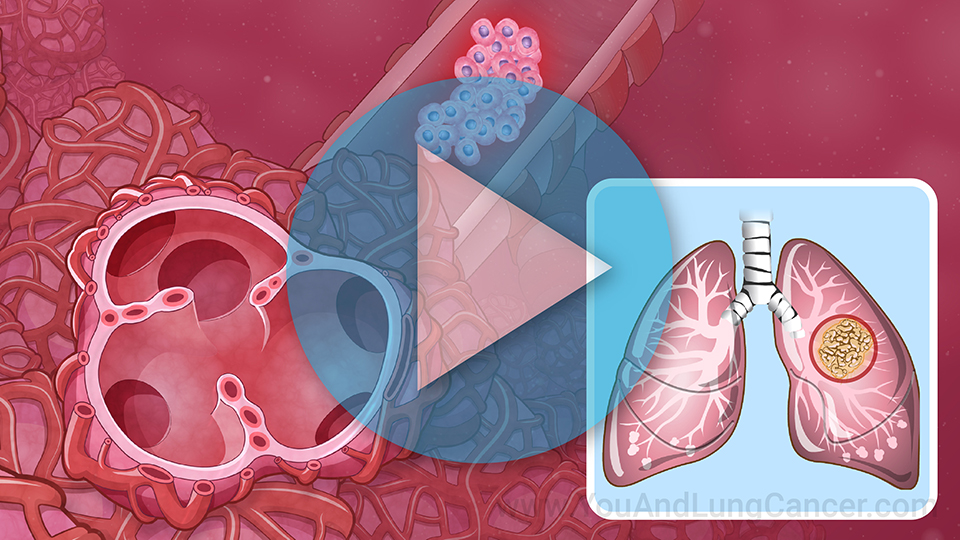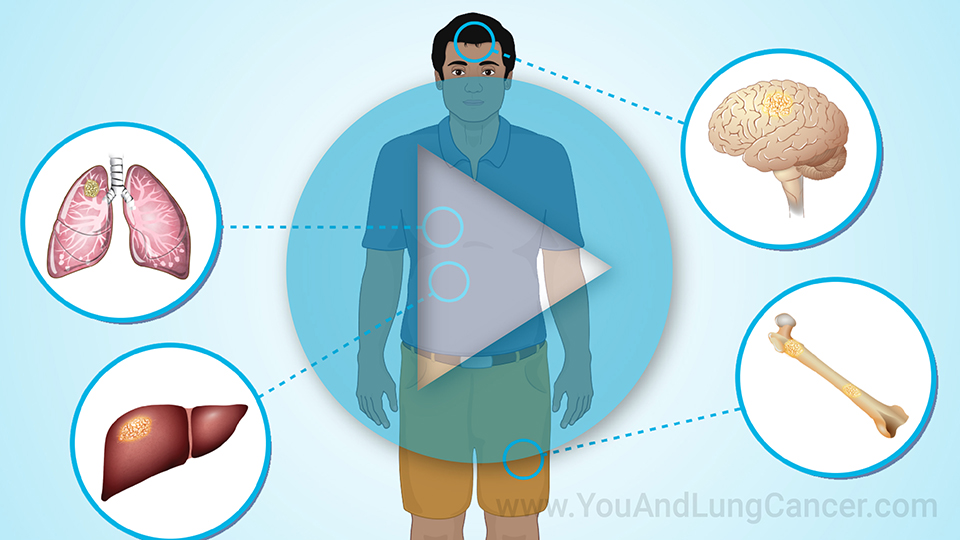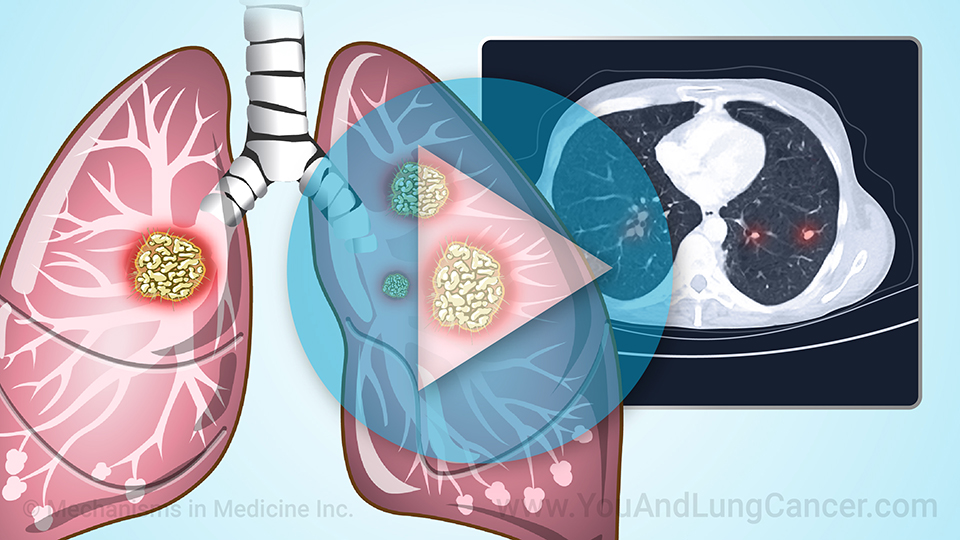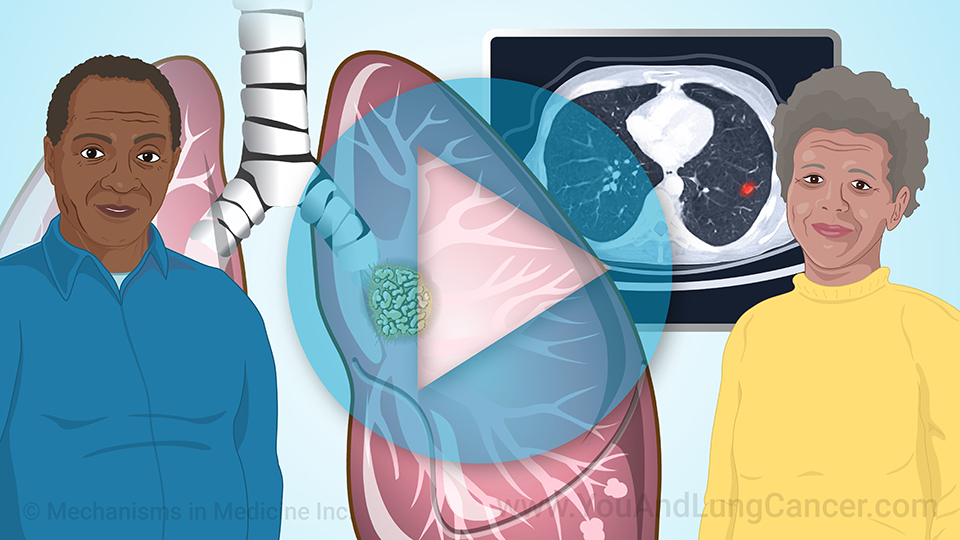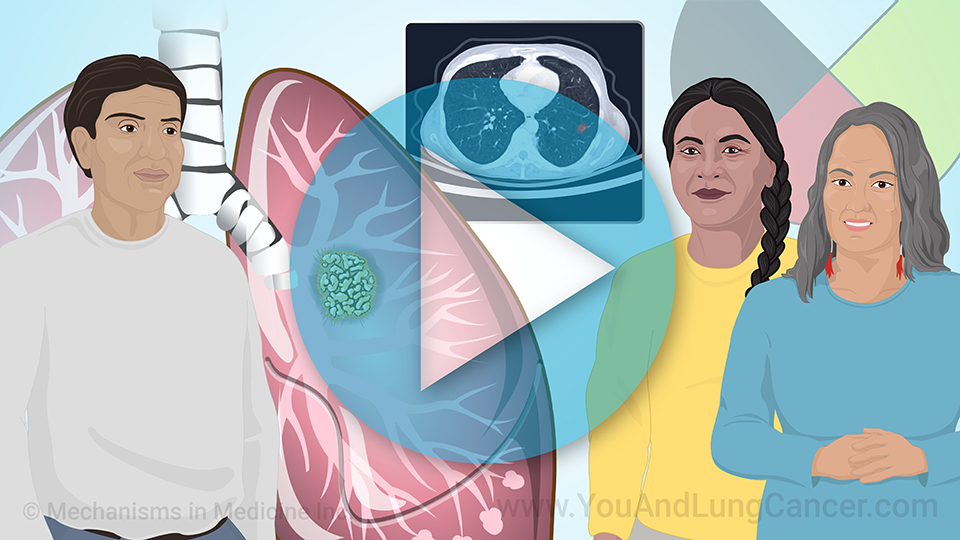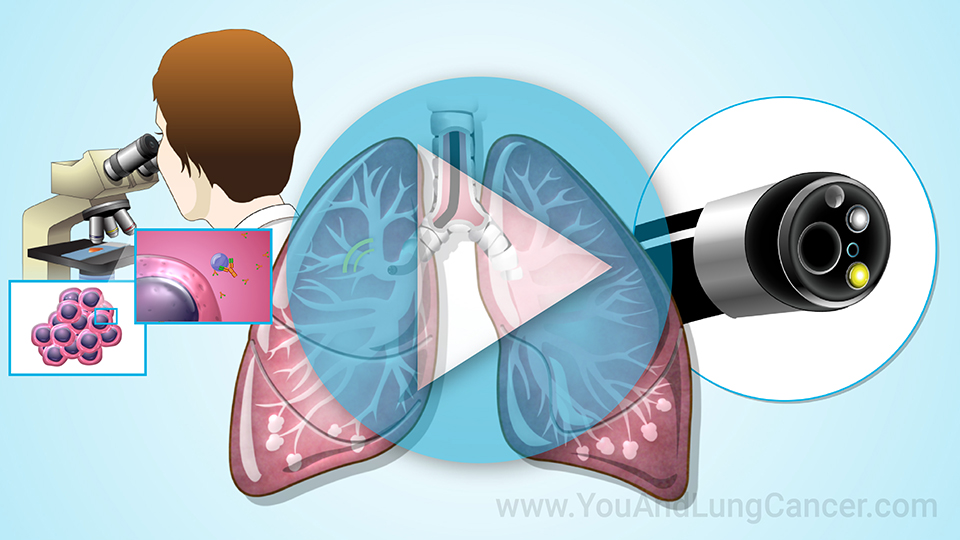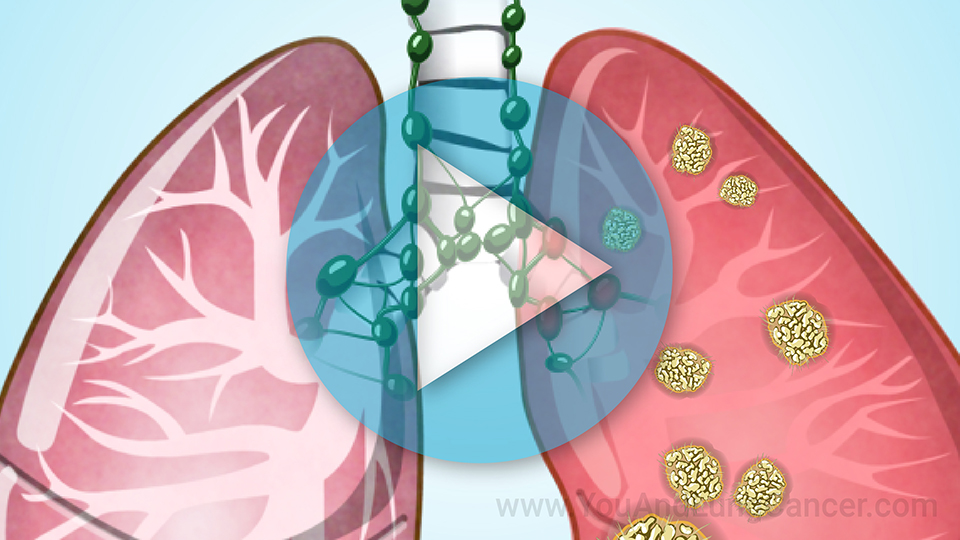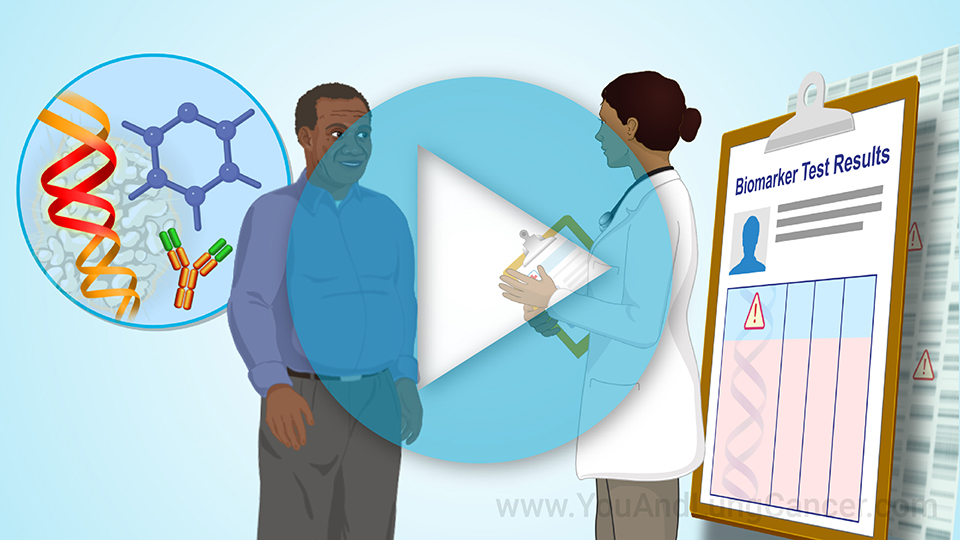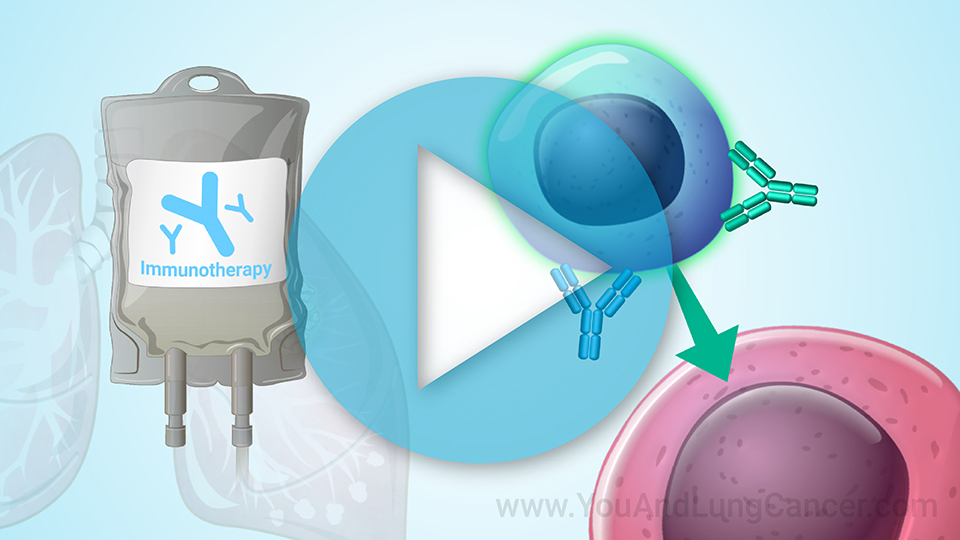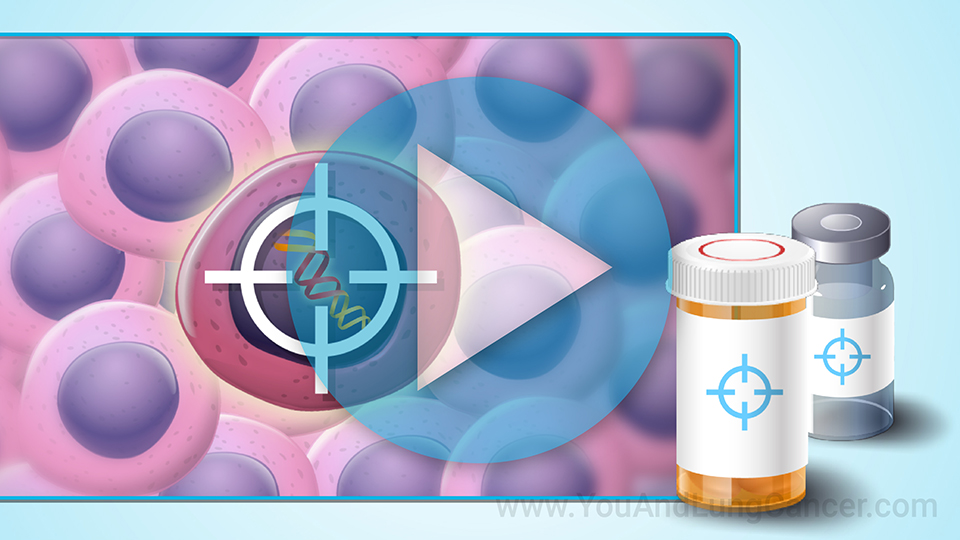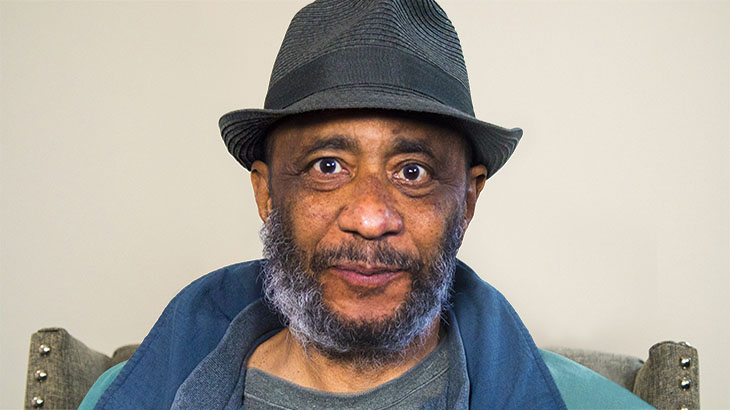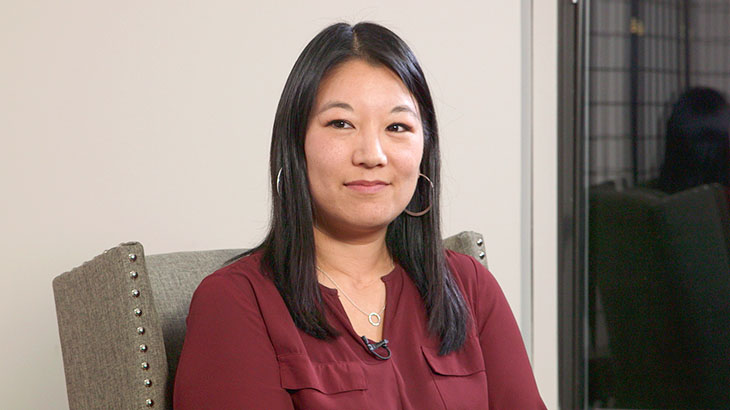Understanding NSCLC Treatment When You Have a KRAS Mutation
*Please note: This slide show is not intended to be a substitute for professional medical advice, diagnosis, or treatment. Always consult your doctor about any questions you may have regarding a medical condition.
What is a KRAS mutation in non-small cell lung cancer (NSCLC)?
A KRAS mutation is a change in the KRAS gene, which is involved in cell growth.
What is a KRAS mutation in non-small cell lung cancer (NSCLC)?
Mutations in this gene signal cells to grow out of control. This is linked to several types of cancer, including colorectal, pancreatic, and non-small cell lung cancer, where it is the most common cancer-causing mutation.1
How will I know if I have a KRAS mutation in NSCLC?
When your lung cancer is diagnosed, your doctor should order biomarker testing. If you are not certain this has been done, ask your doctor.
Biomarker testing is also called molecular testing. It looks at a sample of blood or tumor tissue for mutations in your genes and other information about the cancer. Biomarker testing can find the KRAS mutation.
How common are KRAS mutations?
About one-quarter of all people with cancer have a KRAS mutation, and almost one-third of people with non-small cell lung cancer do.2,3
Most of these people have adenocarcinoma of the lung.
How common are KRAS mutations?
There are several types of KRAS mutation, but the KRAS G12C mutation is the most common. About half of people with a KRAS mutation have this one.
Who is most likely to have a KRAS mutation in NSCLC?
In non-small cell lung cancer, KRAS mutations are more common in people whose families originally came from Western Europe. They are also more common in people who smoke now, used to smoke, or were exposed to a mineral called asbestos.4
What is the treatment for NSCLC with a KRAS mutation?
If you have a KRAS mutation, some NSCLC treatments will not work, but others will. This is one reason biomarker testing for mutations is so important.
The first treatment for NSCLC with a KRAS mutation may include surgery, radiation, and chemotherapy. The exact treatment depends on the stage of cancer, your general health, and other factors.4
Targeted therapy: KRAS inhibitors
The drugs adagrasib (Krazati®) and sotorasib (Lumakras®) are called KRAS inhibitors. They directly target the G12C mutation that many people with KRAS mutations have.
Both drugs are used to treat NSCLC at later stages to help people with a KRAS G12C mutation live longer.5
About adagrasib
Adagrasib (Krazati®) is a KRAS inhibitor that you take as a pill twice a day. It works by preventing tumor cells from growing in people with the KRAS G12C mutation. This can shrink tumors.
About adagrasib
Adagrasib is for people whose cancer has spread and who have taken at least one other drug to treat NSCLC.6
About sotorasib
Sotorasib (Lumakras®) is another KRAS inhibitor. You take this as a pill once a day. It can shrink tumors, like adagrasib (Krazati®).
About sotorasib
Sotorasib may be for you if you have a KRAS G12C mutation, your cancer has spread, and you have taken at least one other drug to treat NSCLC.7
Do treatments that target the KRAS mutation cure NSCLC?
So far, the KRAS inhibitors do not cure NSCLC, but these drugs can slow or stop tumor growth, at least temporarily. This allows people with KRAS mutations and NSCLC to live longer and better lives.
Side effects of KRAS inhibitors
Common side effects of adagrasib (Krazati®) include nausea, diarrhea, and vomiting.8 More common side effects of taking sotorasib (Lumakras®) can include nausea, diarrhea, and muscle and bone pain.5
Some people stop taking the drugs because of side effects, but not all do.
Clinical trials for people with KRAS mutations in NSCLC
Researchers still have many questions about treating NSCLC in people with KRAS mutations. These include using KRAS inhibitors earlier in lung cancer treatment, combining these drugs with other treatments, and reducing side effects.
Finding a clinical trial if you have a KRAS mutation
Clinical trials are an important way to learn if new treatments are effective in people with a disease like NSCLC.
If you have NSCLC with a KRAS mutation, ask your doctor about clinical trials. It is important to do this even before you start treatment, as some trials are only available to people who have not had certain treatments.
References
- Huang L, Guo Z, Wang F, Fu L. KRAS mutation: from undruggable to druggable in cancer. Sig Transduct Target Ther. 2021;6:386.
- Chien S. Targeting the KRAS mutation for more effective cancer treatment. The University of Texas MD Anderson Cancer Center. February 12, 2021.
https://www.mdanderson.org/cancerwise/targeting-the-kras-mutation-for-more-effective-cancer-treatment.h00-159458478.html
- Judd J, Abdel Karim N, Khan H, Naqash AR, Baca Y, Xiu J, VanderWalde AM, Mamdani H, Raez LE, Nagasaka M, Pai SG, Socinski MA, Nieva JJ, Kim C, Wozniak AJ, Ikpeazu C, de Lima Lopes G Jr, Spira AI, Korn WM, Kim ES, Liu SV, Borghaei H. Characterization of KRAS mutation subtypes in non-small cell lung cancer. Mol Cancer Ther. 2021 Dec;20(12):2577-2584.
https://pubmed.ncbi.nlm.nih.gov/34518295/
- Lung.org. KRAS and Lung Cancer. Last revised: November 17, 2022.
https://www.lung.org/lung-health-diseases/lung-disease-lookup/lung-cancer/symptoms-diagnosis/biomarker-testing/kras
- Jaber N. FDA Approval of KRAS Inhibitor Sotorasib for Lung Cancer Hailed as Milestone. National Cancer Institute. June 25, 2021.
https://www.cancer.gov/news-events/cancer-currents-blog/2021/fda-sotorasib-lung-cancer-kras
- FDA.gov. FDA grants accelerated approval to adagrasib for KRAS G12C-mutated NSCLC. Last revised: December 12, 2022.
https://www.fda.gov/drugs/resources-information-approved-drugs/fda-grants-accelerated-approval-adagrasib-kras-g12c-mutated-nsclc
- Drugs.com. Sotorasib. Last revised: September 11, 2023.
https://www.drugs.com/mtm/sotorasib.html
- Guo MZ, Marrone KA, Spira A, Rosner S. Adagrasib: a novel inhibitor for KRASG12C-mutated non-small-cell lung cancer. Future Oncol. 2023 May;19(15):1037-1051.
This slide show provides an overview of
KRAS mutations in
non-small cell lung cancer (
NSCLC) and different
treatment options. The first treatment for NSCLC with a KRAS mutation may include surgery, radiation, and chemotherapy. The exact treatment depends on the stage of cancer, your general health, and other factors. Click through to learn about
biomarker testing,
targeted therapy that targets the
KRAS G12C mutation,
side effects of
KRAS inhibitors,
clinical trials, and more.
-
Share with family and friends:
Click here to take our SURVEY
Your feedback is important to us! We will use your feedback to develop future areas of content about lung cancer which will help other patients, caregivers and families.































